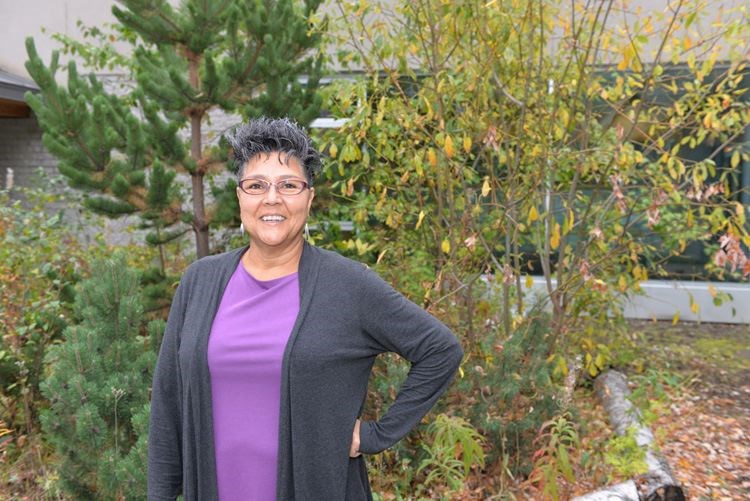Investigating placenames can be a way of connecting with an unknown - or untold - history.
University of Northern B.C.'s writer in residence is starting that conversation Thursday as part of the Anthropology in our Backyards public lecture series that looks at names in Prince George.
"On the very land that you live and work and play and have a family, every single day of your life, do you even know the very territory that's under your feet right now?" asked Janet Rogers, a poet and performer who started her residence in September. "How much do you know about it?"
"I'm providing with this talk as a greater opportunity for us to even consider how much we know about the territories where we live everyday."
That conversation came to the city in June with the renaming of Lheidli T'enneh Memorial Park from Fort George Park.
"It's about language revitalization," said Rogers, who will talk about her experience in Victoria, which reinstated the Salish name Pkols for Mount Douglas in 2013.
"When we reference territories by their original placenames, this isn't just indigenous history, this is history of all the people."
Take Prince George, for example.
"I wonder how many people know who exactly that is," Rogers said. "Who is Prince George? Where did he come from? Did he ever live here? What part did he play in the namesake of the city?
"That is a colonial history, one that excludes indigenous presence and indigenous history. Whereas when you reference indigenous names, this is where all the settler people came into," she said. "And it's part of their history too."
Rogers will also touch on common themes she's noticed when it comes to selecting names.
"The one distinction that I'm discovering in reintroducing original placenames to territories is that when indigenous communities reference territory, it's always having to do with the land - where the land is situated or where it is in reference to other landmarks," Rogers said.
"And when colonial, settler nations name territories it's always after someone."
"The disconnect in the language, I think eliminates an opportunity for people to have kind of deeper more meaningful relationships with that land."
Rogers plans on looking at local trail names, but said she'll let locals speak to the renaming of the park.
"I'm not trying to convince anybody of anything. I'm a visitor as much as I am a visitor in Victoria as well," said Rogers, who comes from Mohawk territory.
"If you're not on board with indigenous language usage on the land and original placenames, just to consider where you are. Does your personal history begin at the time of contact? Do you want your personal history to include pre-contact?"
The event runs from 7 to 9 p.m. in room 7-158.


.png;w=120;h=80;mode=crop)
